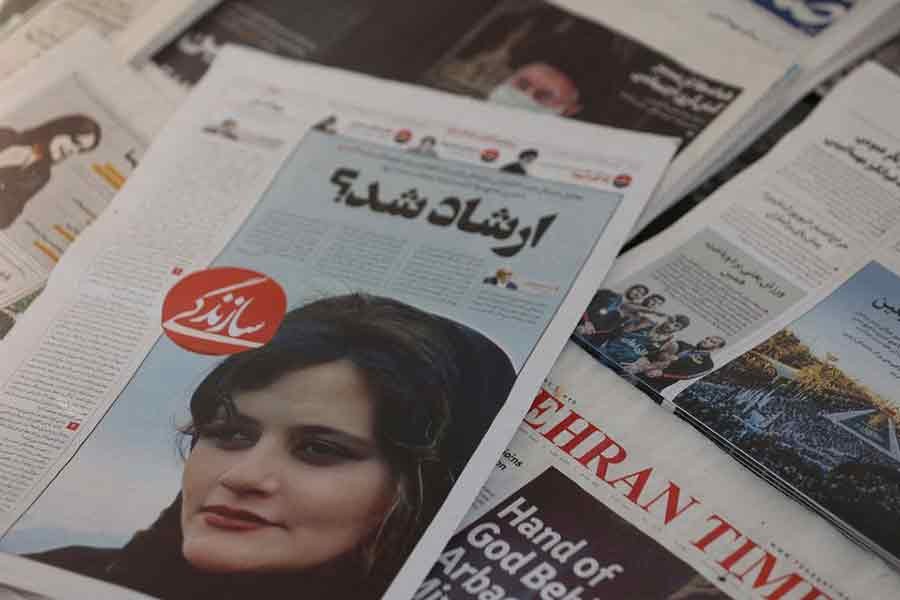Iranian security forces clashed with demonstrators in dozens of cities on Tuesday, state media and social media said, amid continuing protests against the death of young Iranian woman Mahsa Amini in police custody.
Amini, 22, from the Iranian Kurdish city of Saqez, was arrested this month in Tehran for "unsuitable attire" by the morality police who enforce the Islamic Republic's strict dress code.
Her death has sparked the first big show of opposition on Iran's streets since authorities crushed protests against a rise in gasoline prices in 2019.
Despite a growing death toll and a fierce crackdown by authorities, videos posted on Twitter showed demonstrators calling for the fall of the clerical establishment while clashing with security forces in Tehran, Tabriz, Karaj, Qom, Yazd and many other Iranian cities.
State television said police clashed with what it called "rioters" in some cities and fired tear gas to disperse them, according to Reuters.
Videos posted on social media from inside Iran showed protesters chanting, "Woman, Life, Liberty", while women waved and burnt their veils.
Videos on Twitter showed protesters chanting "Death to the dictator", a reference to Iran's top authority Supreme Leader Ayatollah Ali Khamenei. In the Kurdish cities of Sanandaj and Sardasht, riot police fired at protesters, videos on Twitter showed.
"I will kill those who killed my sister," chants of protesters could be heard in one of the videos from Tehran, while activist Twitter account 1500tasvir said: "The streets have become battlefields."
To make it difficult for protesters to post videos on social media, authorities have restricted internet access in several provinces, according to Internet blockage observatory NetBlocks on Twitter and sources in Iran.
GROWING SUPPORT
On Tuesday, a spokesperson for the UN High Commissioner for Human Rights called on Iran's clerical rulers to "fully respect the rights to freedom of opinion, expression, peaceful assembly and association".
In a statement, Ravina Shamdasani said that reports indicated "hundreds have also been arrested, including human rights defenders, lawyers, civil society activists and at least 18 journalists".
"Thousands have joined anti-government demonstrations throughout the country over the past 11 days. Security forces have responded at times with live ammunition," the statement said.
Officials said 41 people, including members of the police and a pro-government militia, had died during the protests. But Iranian human rights groups have reported a higher toll.
The Iranian human rights group Hengaw said "18 were killed, 898 people were injured and over 1,000 Kurdish protesters have been arrested in the last ten days", estimating the figures to be higher.
"Between Monday and Friday, more than 70 women have been arrested in Iran's Kurdistan ... at least four of them are under age 18," Hengaw said on Tuesday.
Iran's judiciary has set up special courts to try "rioters", according to state media.
Social media posts, along with some activists, have called for a nationwide strike. Several university teachers, celebrities and prominent soccer players have supported the protests against Amini's death, according to statements published by them on social media.
Students in several universities have refused to participate in classes, staging protests against the widespread arrest of students and forceful encounters with security forces in universities.
The videos and statements on social media could not be verified by Reuters.
Amini's death has drawn widespread international condemnation while Iran has blamed "thugs" linked to "foreign enemies" for stirring up unrest. Tehran has accused the United States and some European countries of using the unrest to try to destabilise the Islamic Republic.


